
World
15:20, 12-May-2019
What the data tell us about attitudes to migration in Europe
Xuyen Nguyen
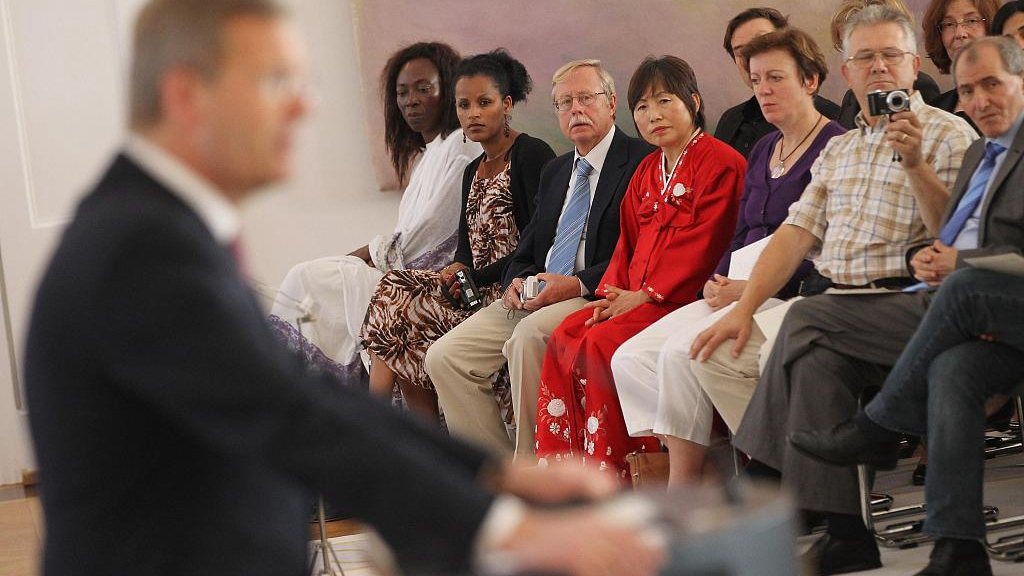
Despite the rise of anti-immigrant parties in sections of Europe, a recent analysis shows that public opinion on immigration has become more positive in Europe.
While variations exist, with Sweden and Hungary making up the extremes, attitudes toward immigrants are generally stable, said an analysis by the Migration Policy Center (MPC) of the European University Institute.
Aimed at gaining a better understanding of public attitudes towards immigration, the MPC collected data from 17 European and Mediterranean countries. Dataset includes international and national academic surveys, as well as surveys conducted by commercial polling firms from 2014 to 2018.
An examination of the dataset can be divided into three general categories: attitudes towards immigrants, perceptions of the effects of immigration and attitudes towards immigration.
Attitudes towards immigrants
Across nine European countries, negativity towards immigrants was generally down. Respondents in Spain and Sweden reported the lowest negativity, while Greece and Hungary had the highest.
Depending on where the immigrants came from – from inside or outside the EU – there were differences in attitudes. All countries reported more positive attitudes towards EU immigrants. However, with the exception of Sweden and Hungary, negativity towards non-EU immigrants had also decreased.
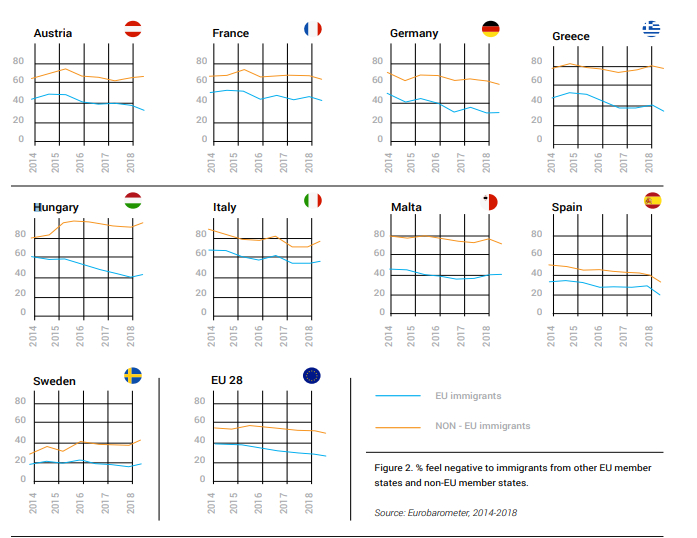
Across nine European countries, negativity towards immigrants was generally down. / Screenshot from MPC report
Across nine European countries, negativity towards immigrants was generally down. / Screenshot from MPC report
Perceptions of the effects of immigration
There was a clear difference in how people perceived how immigrants affected public life. People responded differently to the impact immigrants had in six areas: the economy, culture, quality of life, jobs, government accounts and crime.
Europeans saw immigrants as having a positive effect on culture, while the majority of Europeans said immigration had a negative effect on crime, with 54 percent ranking it between zero and four on a scale of 0-10, with lower numbers indicating negative effects.
The other areas of public life saw more ambiguity. The economy was generally perceived as being positively affected, while many saw immigrants as having a negative effect on government budgets.
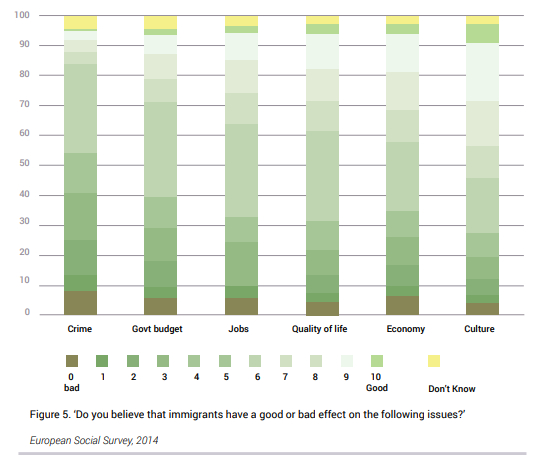
Respondents in nine European countries were asked about whether immigrants had a good or bad effect on public issues. / Screenshot taken from MPC report
Respondents in nine European countries were asked about whether immigrants had a good or bad effect on public issues. / Screenshot taken from MPC report
"This supports previous research in that, on the one hand, individuals are most concerned about the effect of immigration on their safety and on the sustainability of rapid demographic transformation on government budgets and, on the other, we know that Europeans most concerned by immigration are those who value security most highly in their day-to-day lives," write the study's authors.
Attitudes towards immigration
There was a sharp uptick in respondents stating that immigration was an important issue, starting in 2015 when large numbers of asylum-seekers started coming to Europe. Immigration was both an important issue affecting their country and the EU, according to respondents, though across all countries, immigration was seen as a more salient EU issue.
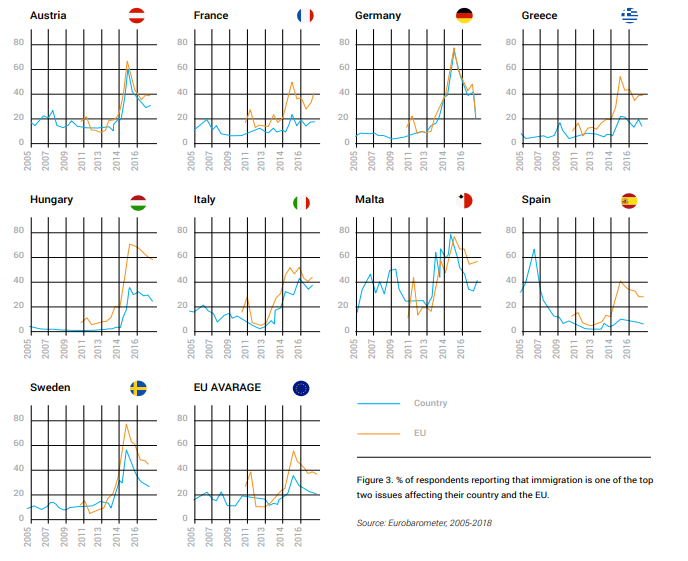
There was a sharp uptick in respondents stating that immigration was an important issue, starting in 2015 when large numbers of asylum-seekers started coming to Europe. / Screenshot taken from MPC report
There was a sharp uptick in respondents stating that immigration was an important issue, starting in 2015 when large numbers of asylum-seekers started coming to Europe. / Screenshot taken from MPC report
Another dimension to measuring attitudes towards immigration policy was what Europeans saw as necessary for accepting immigrants, addressing one of the controversial aspects of immigration, because the welcoming of new people inevitably brings up questions of national identity.
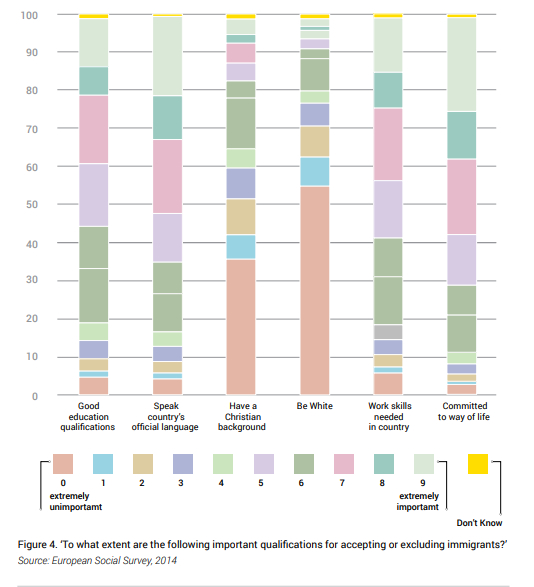
Respondents said the most important qualification for accepting immigrants was commitment to the local way of life. / Screenshot taken from MPC report
Respondents said the most important qualification for accepting immigrants was commitment to the local way of life. / Screenshot taken from MPC report
Ranking qualifications on a scale of one to nine, with nine being extremely important, Europeans said the most important factor was commitment to the local way of life. Less than 25 percent said a Christian background was important and "being white" had the least support.
(Top photo: Former German president Christian Wulff speaks at a ceremony for 22 new German citizens at Bellevue presidential palace in Berlin, Germany, September 30, 2011. / VCG photo)

SITEMAP
Copyright © 2018 CGTN. Beijing ICP prepared NO.16065310-3
Copyright © 2018 CGTN. Beijing ICP prepared NO.16065310-3